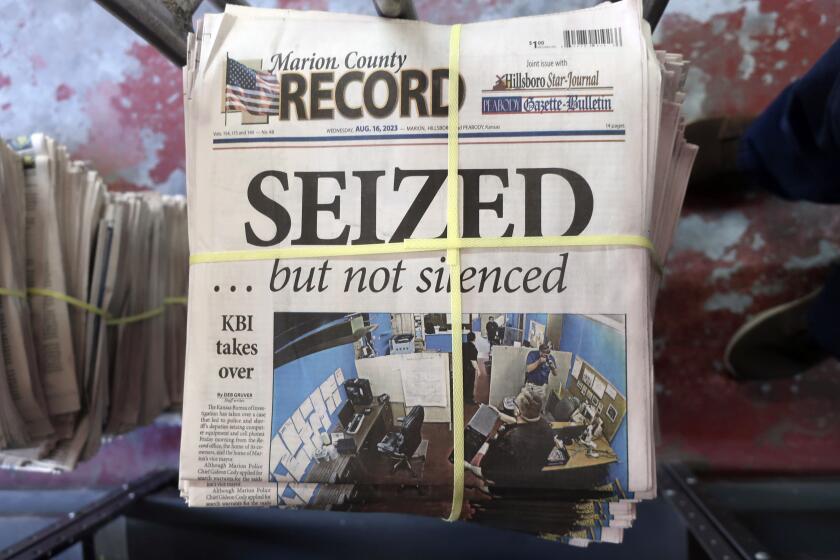Claiming a ‘computer crime’ shouldn’t give police a free pass to raid newspapers
This month, police officers in Marion, Kan., crashed into the newsroom of the Marion County Record, a weekly newspaper, and the home of its publisher to seize computers, cellphones and documents. After several days of public outcry, the county attorney ordered the material returned.
Newsroom searches are rare today because a 1980 federal law makes them almost always illegal. But the outcry goes back to colonial days, when British-loyalist redcoats raided revolutionary American pamphleteers. Such searches were seen as the ultimate attack on the free press. In the infamous 1971 search of the Stanford Daily, for example, Palo Alto police were seeking photographs to tie Vietnam War protesters to a violent clash on campus. After the Supreme Court refused to offer protection from such raids, Congress passed the 1980 statute, making newsroom searches far less of a threat.
Read more: Editorial: Raid on Kansas newspaper was possibly illegal — and definitely troubling
Instead, the Marion case highlights a separate, systemic threat to press freedom: vague and sweeping computer crime laws, which exist in all 50 states. These laws can be readily used to intimidate reporters and suppress reporting without raiding their offices.
The Marion raid appears to be the first time public officials have searched a newspaper under the claim of enforcing a computer crime law. The search warrant in that case listed violations of statutes covering identity theft and “unlawful acts concerning computers.”
The state computer crime statute applies when someone breaks into a computer network with malware or uses another person’s information to steal money from their bank account. But these laws are so vague that they can be deployed to penalize reporters for using computers to find information online as part of routine journalism.
In Missouri, for instance, a reporter for the St. Louis Post-Dispatch discovered a serious flaw in a state website that put the security of thousands of Social Security numbers at risk. He alerted the state agency so it could fix the issue before he published…


